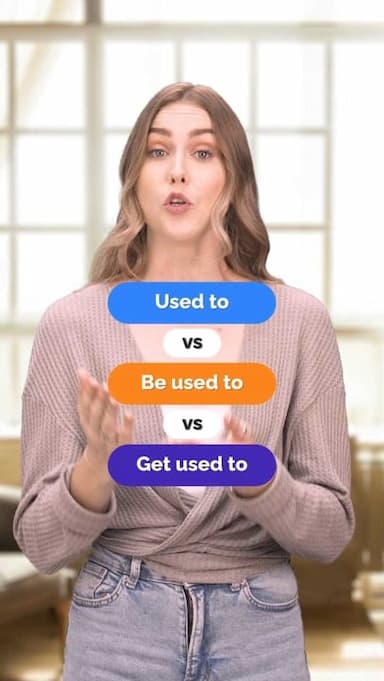But' vs 'Though': What's the Difference?
"But" is used to connect two contrasting ideas in a sentence. For example, "I need to exercise, but I don't like doing it". It cannot be placed at the end of a sentence.
"Though" can also be used to contrast ideas, similar to "but", but it can be placed at the end of a sentence for emphasis or conversational tone. For example, "I need to exercise. I don't like doing it though".
While both words serve to show contrast, "though" offers more flexibility in sentence placement. This can make your speech sound more natural and nuanced.
Improving your understanding of "but" and "though" will enhance your ability to express contrasting ideas clearly and effectively. Watch the video and start incorporating these tips into your daily conversations.
Get the full app experience
Engaging video lessons and fun quizzes to help you ace your English.
Improve your English Level
Improve your pronunciation
Practice conversations
Sharpen your listening Skills
Fix common mistakes in English
Learn Grammar in a fun way
Expand your English Vocabulary
Coming soon to Google Play
© 2023 fluentjoy.com












